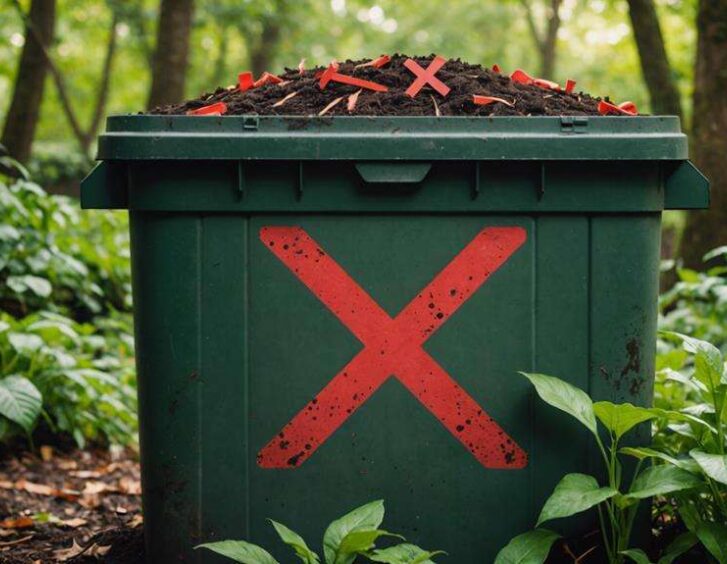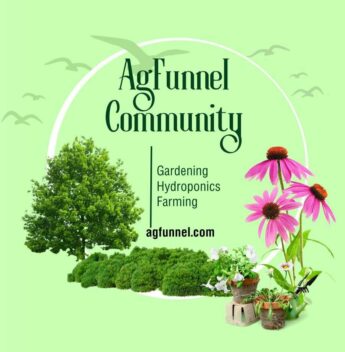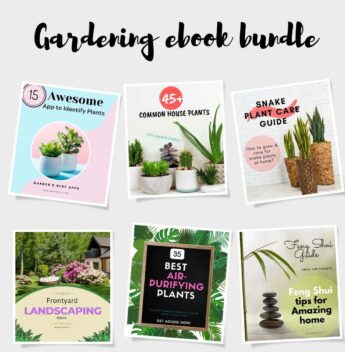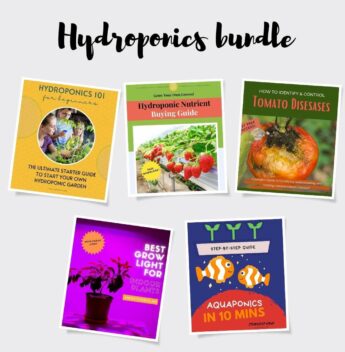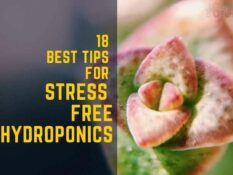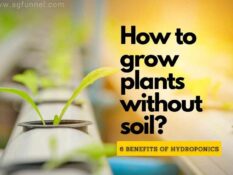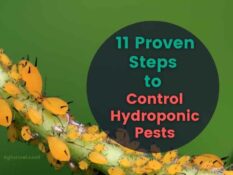You may unknowingly introduce herbicides into your garden through contaminated compost, risking damage to your plants and soil health. A simple test using bean seeds can help detect potential threats in your compost. Plant bean seeds in the compost or mulch, and if they germinate and grow normally, the material is likely herbicide-free. Curled leaves, twisted stems, or stunted growth indicate contamination. By verifying your compost, you can identify potential threats to your garden. Learn how to safeguard your garden from herbicide contamination and discover more effective ways to guarantee the health and safety of your plants.
Key Takeaways
• Test for herbicides by planting bean seeds in compost or mulch to ensure safe materials for your garden.
• Persistent herbicides like Clopyralid and Aminopyralid can survive composting and affect plants for up to three years.
• Sourcing materials from unknown origins can lead to herbicide contamination, so use OMRI-approved products or create your own compost.
• Visual inspection alone cannot detect herbicide contamination, so conduct a bioassay test using sensitive seeds like beans.
• Remove contaminated material promptly to prevent soil pollution and test affected areas before replanting to ensure safety.
Identifying Herbicide Contamination Risks
When sourcing compost or mulch, you need to take steps to identify potential contamination to prevent introducing herbicides into your garden. You might unintentionally bring harmful chemicals into your garden, damaging your plants and soil.
To avoid this, it's crucial to test for herbicides before adding new materials to your garden. A simple test involves planting bean seeds in the compost or mulch. If the seeds germinate quickly and healthily, it's a good sign the material is safe. However, if the seedlings show curled leaves, twisted stems, or stunted growth, it may indicate herbicide contamination.
Persistent Herbicides in Compost
To guarantee the safety of your garden, it's crucial to be aware of persistent herbicides like Clopyralid, Aminopyralid, Aminocyclopyrachlor, and Picloram in compost, which can survive the composting process and pose a significant threat to your garden.
These herbicides are designed to target broadleaf plants without affecting grasses, making them particularly resilient. They can persist in the soil for up to three years, causing curled leaves, twisted stems, and stunted growth in your plants.
Being mindful of these persistent herbicides is important, as they can contaminate your compost and mulch, putting your entire garden at risk. By understanding the risks associated with these herbicides, you can take proactive steps to protect your garden and ensure a healthy, thriving ecosystem.
Stay vigilant, and take control of your compost to prevent these persistent herbicides from ruining your harvest.
Sources of Herbicide Contamination
Given that animal manure from herbicide-treated grass can transfer herbicides, it's important to examine the sources of your compost and mulch materials.
As you collect materials, be aware that hay and straw mulch are more likely to contain herbicides. Compost made from animal bedding or mushroom compost can also harbor persistent herbicides.
Even wood chips, leaves, and yard waste can potentially contain herbicides. Be cautious when sourcing materials from unknown origins, as they may be contaminated.
Take control by making your own compost or sourcing OMRI-approved products to guarantee herbicide-free materials. By being mindful of these sources, you can reduce the risk of herbicide contamination in your compost and mulch.
Detecting Herbicide Presence
To guarantee the safety of your compost and mulch, you'll need to detect herbicide presence through reliable methods, as visual inspection alone can't determine herbicide contamination.
One effective way to test for herbicides is by planting bean seeds in your compost or mulch. If the seeds germinate quickly and grow normally, it's a good sign that your compost or mulch is herbicide-free.
However, if the seeds don't germinate or the seedlings exhibit curled leaves or twisted stems, it may indicate herbicide contamination. This simple test can help you identify potential threats to your garden and take necessary precautions to ensure a healthy and thriving harvest.
Signs of Herbicide Damage
If your plants are exhibiting stunted growth, distorted leaves, or other unusual symptoms, it may be a sign that your compost or mulch is contaminated with herbicides.
As you inspect your garden, look for signs of herbicide damage, such as curled leaves, twisted stems, or abnormal growth patterns. These symptoms can vary depending on the type of plant and herbicide present.
If you suspect herbicide contamination, it's important to act quickly to prevent further damage. Be aware that herbicides can persist in the soil for up to three years, so it's crucial to take prompt action to mitigate the issue.
Managing Contaminated Material
Upon discovering herbicide contamination, you must act swiftly to remove the tainted material and prevent further soil pollution.
Don't hesitate, as the longer you wait, the more harm it can cause to your soil and plants. Remove the contaminated compost or mulch immediately, and dispose of it safely.
If you've already used the contaminated material, consider relocating your garden to a new area if the contamination is severe. Act quickly to prevent more herbicides from entering the soil.
Test the affected area before replanting your garden to make sure it's safe. By taking prompt action, you can minimize the damage and protect your soil and plants from further harm.
Sourcing Safe Compost Materials
You can guarantee herbicide-free compost by making your own from household waste, leaves, and grass clippings from untreated lawns. This way, you have complete control over the materials used.
If you need to source materials from outside, look for OMRI-approved products, which guarantee no synthetic herbicides are present. You can also connect with local gardeners and farmers to find herbicide-free materials. Before buying in bulk, request a sample for testing to make sure it's safe for your garden.
Using alternative materials like leaves and wood chips from your property can also be a great option. By taking these steps, you can create a safe and healthy environment for your plants to thrive.
Testing for Herbicides
To detect herbicide contamination, you'll need to conduct a bioassay, which involves planting sensitive seeds, like beans, in the suspect compost or mulch. This test helps identify if herbicides are present.
Simply fill a pot with the compost or mulch, plant the seeds, and wait for them to germinate. If the seeds sprout quickly and grow normally, it's likely the compost or mulch is herbicide-free. However, if the seeds germinate rapidly but exhibit curled leaves, twisted stems, or other abnormalities, it may indicate herbicide contamination.
Avoiding Herbicide Contamination
By taking proactive steps, you can greatly reduce the risk of introducing herbicide-contaminated materials into your garden or compost pile. Start by sourcing materials from trusted suppliers or creating your own compost.
When purchasing hay, straw, or manure, ask the supplier about their herbicide use. Be cautious of products containing persistent herbicides like Clopyralid, Aminopyralid, or Aminocyclopyrachlor. Consider using alternative materials like leaves or wood chips from your property.
Safe Composting Practices
Implementing safe composting practices is crucial to preventing herbicide contamination. It starts with knowing what materials to include and exclude from your compost pile.
You want to create an environment where microorganisms can thrive, breaking down organic matter efficiently. Include a mix of 'green' materials like food scraps, grass clippings, and manure, and 'brown' materials like leaves, straw, and shredded newspaper. Exclude weeds with seeds, pet waste, and meat scraps, which can attract pests and create unpleasant odors.
Maintain a balance of carbon-rich 'brown' materials and nitrogen-rich 'green' materials. Keep your compost pile moist, aerated, and turned regularly to guarantee proper decomposition. By following these guidelines, you'll be well on your way to creating a nutrient-rich compost that's safe for your garden.
Frequently Asked Questions
Can Herbicides in Compost Affect Beneficial Microorganisms?
You're wondering if herbicides in compost can affect beneficial microorganisms.
The answer is yes. Herbicides can harm or even kill beneficial microorganisms like bacteria and fungi in compost. These microorganisms are essential for breaking down organic matter and creating a healthy soil ecosystem.
When herbicides contaminate compost, they can disrupt this process, leading to an imbalance in the soil's microbial community. This can have long-term effects on soil health and plant growth.
Are Herbicide Residues More Toxic in Certain Soil Types?
You're wondering if herbicide residues are more toxic in certain soil types.
The answer is yes! Herbicide residues can be more toxic in soils with low organic matter, high sand content, or acidic pH.
For instance, acidic soils can increase the solubility of herbicides, making them more available to plants. Additionally, soils with low organic matter may not be able to break down herbicides as efficiently, leading to increased toxicity.
Can I Use Activated Charcoal to Neutralize Herbicides?
Can you use activated charcoal to neutralize herbicides?
Unfortunately, it's not that simple. While activated charcoal can absorb some herbicides, it's not a reliable solution for neutralizing them. The effectiveness depends on the type of herbicide, its concentration, and the charcoal's quality.
Additionally, activated charcoal may not address the root cause of the contamination.
For a safer approach, focus on sourcing herbicide-free materials, testing your compost, and taking preventative measures to avoid contamination in the first place.
Do Herbicides Break Down Faster in Hot Compost Piles?
You're wondering if herbicides break down faster in hot compost piles. The answer is yes, they do! Heat can help degrade some herbicides, but it's essential to note that persistent herbicides like Clopyralid can still survive high temperatures.
A hot compost pile can reach temperatures of 130-140°F (54-60°C), which can break down some herbicides, but it's not a foolproof method.
Are There Any Herbicide-Destroying Microorganisms I Can Add?
You're looking for microorganisms that can destroy herbicides. While there aren't specific microbes that target herbicides, some composting microorganisms can break down certain herbicides.
For example, white rot fungi can degrade some pesticides. Adding these microbes to your compost won't specifically target herbicides, but they can contribute to a healthy compost ecosystem.
Focus on creating ideal composting conditions, and these microorganisms will thrive, helping to break down organic matter and potentially mitigating herbicide effects.


